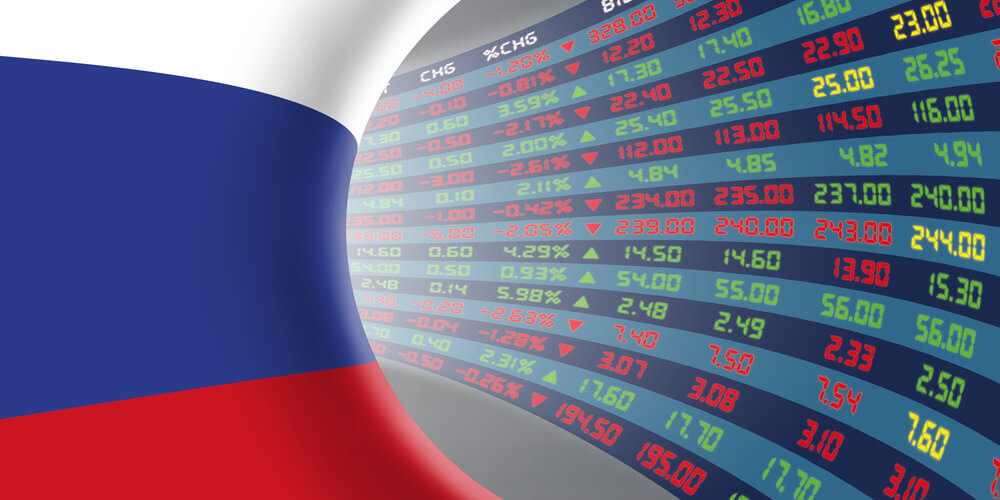Russia’s largest lender sees bigger role for Islamic finance as it rolls out first halal ETF
Russia’s largest lender sees a bigger role for Islamic finance in its 2022 strategy after launching the country’s first ever halal exchange traded fund (ETF) last month in a bid to fill the gap for Islamic financial products.
State-owned Sberbank via Sber Asset Management rolled out Russia’s first ever Sharia compliant ETF called Halal Investments towards the end of November.
“The ETF is based on the MOEX Shariah Total Return Index designed by Moscow Exchange (MOEX) together with Sberbank,” said Behnam Gurbanzada, chief Islamic finance officer at Sberinvest Middle East. “The index is composed of the 15 most heavily traded stocks of Russian companies on MOEX. Our main idea was to create a Sharia compliant ETF for the local market.”
The passively managed ETF is available for both Russian and international clients, said Gurbanzada, adding that investors can purchase even one share in the Halal Investments ETF.
“The recommended investment term is three years,” he said. “The liquidity of the products is high. Investments in the assets are denominated in roubles. Next year the ETF will be also be available in US dollars.”
He highlighted that the ETF will be screened monthly and audited quarterly by the Sharia Supervisory Board, adding that non-halal funds will go to charity.
“We observe a demand for Sharia compliant products in the market,” Gurbanzada said. “Furthermore, clients are focusing more and more on investment products rather than on deposits. This fund is primarily designed for people seeking to invest and adhere to Sharia. The ETF’s financial attractiveness is not inferior to other conventional investment instruments.”
Sber’s halal ETF comes shortly after the introduction of two new Islamic indices that it helped to create with MOEX.
In October, the bourse launched the MOEX Shariah Index and MOEX Shariah Total Return Index. The indices enable investors to invest in halal instruments.
Gurbanzada said there were administrative and educational challenges in developing their new ETF.
“It was a completely new product for the Russian market and for Sber as well,” he said. “Our team was very excited to learn about ethical requirements for investment products. Based on the experience achieved during the work we found out some new investment ideas applicable to Islamic financing.”
As part of new investment ideas, Sber’s Islamic finance team is working in two areas. The first is the adoption of existing products to Sharia required standards. The second is structuring new products.
“At the present time we are focused on corporate financing,” he said. “Bank accounts for corporate clients, financing, investment products for individuals, operational leasing etc.”
Underserved market
Russia’s Muslim population ranges between 10% to 15% of the country’s 144 million, according to various estimates.
One Moscow-based banking analyst, who asked for anonymity, said local experts in Islamic finance point out the lack of information about the genuineness of Sharia compliance in the fund.
“I doubt that the investor community in Russia cares much about Islamic instruments,” he said. “Whether this ETF will be of interest to non-Russian residents, I’m not too sure.”
But a practitioner familiar with the Russian Islamic finance market disagreed, saying it was a positive development.
“This ETF is positive because Muslim consumers or those seeking Sharia compliant investments in Russia have little to no choice,” he said.
Despite a sizeable Muslim population, and a gap for Islamic financial products, there are few players in the market. Market participants point to some of the legal and regulatory challenges.
“There is still no law on Islamic finance and subsequently the tax treatment, and in particular VAT [valued added tax], makes Sharia-compliant products uncompetitive,” said the practitioner, who also requested anonymity.
Sber Islamic finance strategy
Sberbank’s Islamic finance efforts will be underpinned by Sberinvest Middle East, Sber’s subsidiary in the Abu Dhabi Global Market (ADGM).
The subsidiary has been operational since June 2021, when it received its final authorization from the Financial Services Regulatory Authority (FSRA) of ADGM, noted Gurbanzada.
Sber’s foray into the Middle East follows a lengthy application process. In October 2020, Salaam Gateway reported that the Russian lender was working on the process.
In September 2020, the state-owned lender signed a strategic agreement with Mubadala, Abu Dhabi’s sovereign investment company. The agreement covered cooperation in several areas including Islamic finance.
“Our strategy is to create accesses for all clients,” said Gurbanzada. “To establish a secured bridge between Russia and the MENA. The bridge which will be based on partnerships.”
To meet their clients’ needs and demands, Sber’s Islamic finance team are working on Sharia-compliant asset management products.
“We are considering several investment products for local and international clients together with Sberinvest Middle East,” he said.
© SalaamGateway.com 2021 All Rights Reserved
